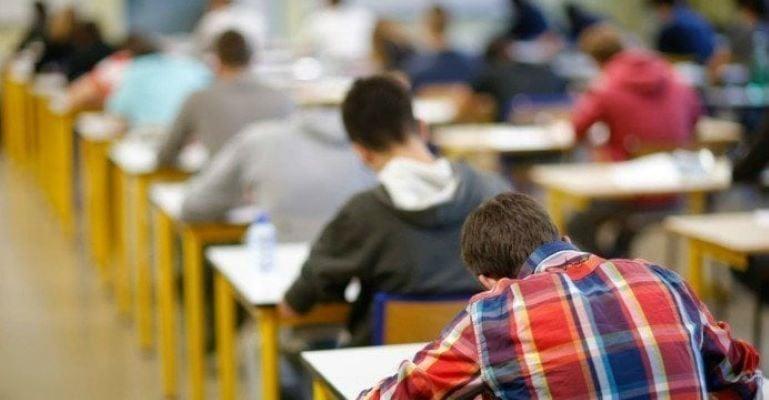The British council canceled all the afternoon exams in Lahore on Thursday, citing increased security risks in the middle of increasing tensions between India and Pakistan.
The decision affects the GCE, IGCSE, IELTS and University of London assessments which take place in the city’s sites during the PM session.
In a statement published on social networks, the British Council said that this decision had been taken in coordination with examination commissions to “prioritize the security and security of candidates”.
Students were invited to stay in touch with their schools for new updates, while private candidates are invited to contact the British Council customer service center.
The organization has not confirmed if the exams would be reprogrammed, but noted that all the official updates would be provided via its verified channels.
Lahore, among other cities, was placed under increased security alerts, with intermittent flight suspensions that are also reported.
Earlier, Punjab Minister Maryam Nawaz said the state of emergency throughout the province. She ordered all the security institutions, including the police, to remain on alert.
The chief minister canceled the holidays of doctors and other members of medical staff from all Punjab hospitals and ordered all employees to resume their functions immediately.
She also ordered the Punjab district administrations to remain on alert.
Last tensions between Pakistan and India
The latest climbing of tensions between India and Pakistan follows the attack on April 22 in Pahalgam, in India illegally occupied of Jammu and Kashmir (Iiojk), which resulted in 26 deaths. India immediately accused Pakistan elements of orchestrating the attack, although no evidence has been provided. Islamabad firmly rejected these allegations.
In retaliation, India closed the Wagah lands border on April 23, suspended the Industry Water Treaty and revoked Pakistani visas. Pakistan responded by labeling any disturbance in water flow as an “act of war” and closed the Wagah crossing on the side.
The situation erely intensified on Wednesday, while reports from various cities in Pakistan, including Muzaffarabad, Kotli, Muridke and Bahawalpur, detailed several explosions. Pakistan’s military spokesperson, lieutenant-general Ahmed Sharif Chaudhry, confirmed that Indian air strikes had targeted several locations in Pakistan. In response, Pakistan has launched Swift Air and Ground Operations.
During the first hour of reprisals, Pakistan announced the decline in five Indian fighter planes, including four burst aircraft, which India had recently acquired France to strengthen its air defenses following the failure of Balakot’s operation in 2019.
“Pakistan could have killed 10 Indian fighter planes,” said Lieutenant-General Chaudhry during a press briefing. “But Pakistan has chosen to exercise a restraint.”
Despite the magnitude of the answer, the Indian media remained largely silent on the losses. The Hindu, an eminent Indian newspaper, initially reported that three Indian planes had been slaughtered but then deleted the article, probably under pressure from the Indian government to avoid more embarrassment.
An American commentator on CNN said that the potential loss of Rafale planes would seriously damage India’s claim to air superiority, which it had built around the induction of these advanced French warns. Some experts have hypothesized that the confrontation had served as a test of Chinese and Western military technologies, especially after Pakistan acquired J-10C jets in China in response to the Rafale Fleet of India.
A senior French intelligence official confirmed to CNN that a burst plane had indeed been shot down by Pakistan, marking the first time that this sophisticated French plane had been lost in combat.
In another development, the Pakistan armed forces have confirmed the neutralization of 25 HAROP drones of Israeli manufacturing used by India in a recent cross -border activity.
A statement published Thursday by Inter-Services Public Relations (ISPR) of Pakistan confirmed Thursday that these drones had been slaughtered by using both electronic countermeasures (soft-tight techniques) and conventional weapons (hard killers) after being detected in several areas through Pakistan.
The ISPR has described the incursions of the drone as a “desperate and panicked response” by India, which intervened after Pakistan’s reprisal operations on May 6 and 7, in which five Indian hunting planes were slaughtered and several military posts were struck.




